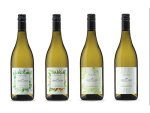Did you know that nearly 90% of total New Zealand wine sales occur offshore? That simple number means our wine businesses are the most export oriented of all the global wine industries. It also makes our sector especially sensitive to any changes in the trade rules that govern the access of our wines into international markets.
Fortunately, over the past 40 years we have seen a gradual but steady improvement in the rules governing the access of our wines into the markets that are important to us. Some of these gains have been the result of general improvements in access for all goods from New Zealand, while other developments are more wine specific.
First off the block was Closer Economic Relations (CER), which gave tariff free access for all goods from Aotearoa into Australia. This landmark agreement is still one of the highest quality Free Trade Agreements (FTA) to have been signed anywhere in the world. For our wineries it provided them with the opportunity to compete in a bigger and wealthier market - and compete we did, very successfully, as the position of our wines in that market ably demonstrate.
Over the following years there have been a number of other FTAs that have lowered or removed tariffs and overall improved access - China in 2008, CPTPP, then the UK FTA, and more recently the EU FTA. These agreements, along with others, have all delivered access gains into a range of markets, whether by reduced tariffs or improvements in wine-specific access matters, such as winemaking or labelling rules. Today more than 50% of our exports are into markets with comprehensive FTAs in place.
Beyond the general trade agreements, the landmark wine specific agreement is the Mutual Acceptance Agreement on Oenological Practices (MAA). As well as New Zealand, this agreement has been signed by the United States, Canada, Australia, Chile, Argentina, South Africa, Georgia and Uruguay.
This binding treaty-level arrangement means that when exporting to signatory countries, New Zealand winemakers can make wines based on the New Zealand winemaking rules; they don't have to be concerned with the rules applicable in the importing countries. In short, our winemakers can make the wines the way that best suits their grapes, their vineyard and the season, rather than having to comply with rules that may have been designed for entirely different grape growing conditions. This has been a big plus for wineries, not the least in the way of cost savings.
The steady improvement in access conditions to markets has been one of the foundations on which the growth of exports has been based. Of course, over the years problems have arisen from time to time. In those cases, such as when companies had trouble accessing the duty-free entry to China, we worked with the Ministry of Foreign Affairs and Trade, the Ministry for Primary Industries and Customs to address issues. In the final analysis there was also the World Trade Organisation (WTO) to appeal to if a negotiated resolution could not be achieved.
Read More
All up, over 40 years the rules-based trade system has worked to underpin the growth of wine exports. But in recent times, things have started to change the global trading system, and unfortunately not for the better.
The referee of the global trading system (the WTO) has lost a lot of its authority, and across the globe there has been a rise in retaliatory tariffs. The US slapped tariffs on imports from China, and put them on steel imports as well. China, of course, imposed substantial tariffs on wine imports from Australia, significantly reducing their wine trade into China almost overnight. It took years for these tariffs to be removed.
Until now New Zealand wine exporters have escaped this resurgence in tariffs. However, wineries now face the potential prospect of tariffs on shipments to the US, if the second term Trump administration delivers on its promise of universal tariff on all imports. At this stage we don't know if, when and at what level tariffs will be imposed on our wine imports, but if they are this will be a shock for winemakers, because it will be the first time in many years that access into a major market for our wine will have become more difficult and expensive.
That is not good news for an industry that exports 90% of its products. It is certainly not good news for wine exports to the US, which represent just under 40% of the total value of New Zealand wine exports.
Where to from here?
The Advocacy team works hard to monitor and report on market access barriers that can affect our members. In the past few months this has included active engagement on topics like nutrition and ingredient labelling in the EU, sustainability and low/no alcohol wines. If you've ever got a question or concern about any of these topics, please get in touch with our team at This email address is being protected from spambots. You need JavaScript enabled to view it..
At this stage we do not know if, when and at what level US tariffs will be imposed. We are in close contact with the Government on this issue and will be keeping members up to date with news. As global exporters we need a sound, rules-based trading system in place as this lowers risk and provides confidence to invest. Let's hope tariffs don't become a contagion, popping up in other markets at the whime of their governments.













